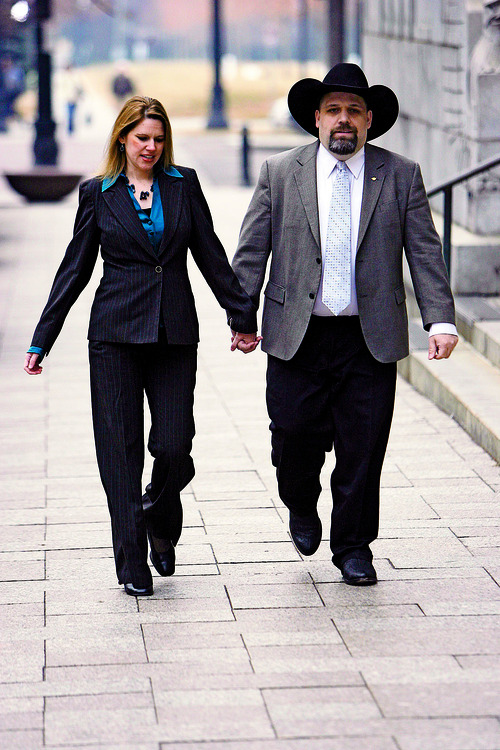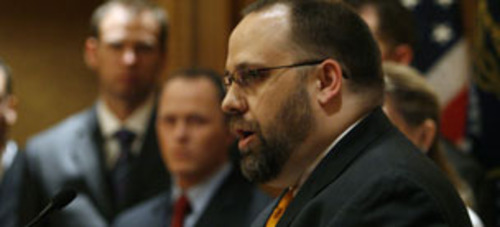This is an archived article that was published on sltrib.com in 2014, and information in the article may be outdated. It is provided only for personal research purposes and may not be reprinted.
An investor on Wednesday described the roundabout way employees of accused Ponzi scheme operator Rick Koerber steered him to invest in a company that led him to lose hundreds of thousands of dollars.
Investor Tom Tibbs was the opening witness in the trial of Jason K. Vaughn, of Orem, a partner and employee of Koerber's who also ran a company that took in money from investors and poured it into Koerber's real-estate investment operation.
Koerber faces 18 federal fraud-related charges connected to his operation of Provo-based companies that took in $100 million or so from investors but allegedly used more than $50 million of that to make interest payments to investors in what prosecutors claim was a Ponzi scheme. Koerber has pleaded not guilty and a trial is still pending, nearly five years after the first charges were filed.
Vaughn is the first of Koerber's associates to go to trial in federal court, though two others have pleaded guilty to minor charges.
Tibbs testified he and his wife took a seminar in real-estate investing from Koerber's FranklinSquires Cos., then were told if they wanted to invest in his hard-money lending operation they had to do so through Vaughn, who also was mentoring them.
Tibbs, a former Monticello resident, invested a bit more than $606,000 in the operation after being told he and his wife could earn a return of 3 percent a month and that real estate backed their investments.
Assistant U.S. Attorney Stewart Walz, who also is the lead prosecutor in the Koerber case, told the jury that Vaughn continued to collect money from investors even after a Koerber email in June 2007 said the company was halting payouts because of a cash crunch.
The same day he received the email, "The defendant wrote a [$15,000] check to return investment monies to whom? His mother," Walz said.
Vaughn faces four counts of interstate transportation of money obtained by fraud, wire fraud and money laundering.
Vaughn's attorney, J. Edward Jones, asked the jury in his opening statement to focus on whether Vaughn intended to defraud the investors who put $2.85 million in his company, Freestyle Holdings, or merely made bad business decisions.
"The key issue in this case is whether Mr. Vaughn intended to defraud those people," Jones said. "You see, it's not a crime to lose money. It's not a crime to lose other people's money."
The trial is scheduled to run for five days.
The Utah Division of Securities originally handled an investigation into Koerber's business activities, but the office of then-Utah Attorney General Mark Shurtleff declined to take legal action. The decision not to pursue a civil complaint came after meetings that then-Rep. Carl Wimmer, R-Herriman, arranged with Shurtleff, Chief Deputy Attorney General Kirk Torgensen, then-House Speaker Greg Curtis and other state lawmakers.
Department of Commerce Executive Director Francine Giani got frustrated with the lack of action and took the case to federal prosecutors, who initiated their own investigation.
Twitter: @TomHarveySltrib





